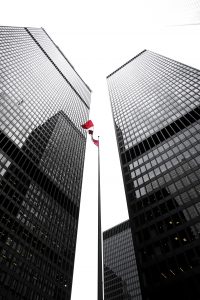What is AML screening? It is the process that institutions must take in order to determine if any of their customers are or could be linked to money laundering, bribery and corruption, terrorist financing, or another form of financial crime. Through screening, institutions can prevent criminals from concealing illegally gained funds from prying eyes.
Money laundering is the process that criminals use to make “dirty” money seem clean. They may set up a business to funnel money through like a car wash or a strip club. In the increasingly globalized world, some criminals also use shell companies, international wire transfers, multiple bank accounts, and offshore accounts to make their illicit earnings appear legitimate. Anti-money-laundering task forces are set up to combat this problem. Since money laundering allows criminals like terrorists and drug dealers to stay in business, preventing access to illicit funds is a key way to combat global crime.
The anti-money-laundering process involves laws and procedures that are designed to stop criminals from funneling illicit money into legitimate accounts or businesses. When criminals launder money successfully, they are able to make it seem like their money is being earned legitimately. Anti-money-laundering (AML) laws are set up to cover certain types of transactions and criminal actions.
Because of laws like the Bank Secrecy Act, financial institutions are required to report suspicious behavior.
What is AML screening?
When most people think of the negative effects of money laundering, they think of crime. By laundering money, criminals are able to profit from crimes like selling drugs, trafficking humans, embezzling money or fraud. Other than this obvious problem, money laundering also hurts many small businesses. If someone sets up a car wash or laundromat as a front business, then a legitimate business will find it harder to succeed. The fake car wash never has to earn a profit and can even sell car washes at a loss since its actual income is made from illicit sources.
Money laundering also creates false supply and demand for certain products. If many money launderers are investing in front businesses, it makes it seem like there is an increased demand for car washes. Often, money launderers invest in financial products, which also distorts the marketplace.
There are international organizations set up to combat money laundering. Groups like the FATF have recommendations in place that financial institutions and governments can use to guide their anti-money laundering activities. In addition, many nations also have specific laws to address money laundering. In the United States, laws like the Bank Secrecy Act, the United States Patriot Act and the Money-Laundering Suppression Act were all set up to combat this crime.
Anti-money laundering programs can help to combat terrorism. Terrorists may receive money from legal or illicit sources.





